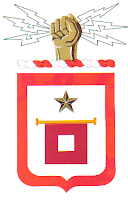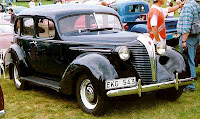I was assigned to the Signal Corps and sent to Camp San Luis Obispo with several other men. We went through 8 weeks of basic training and 8 weeks telephone communication. I was always the first to receive KP and guard duty because of my last name begins with “A”.
When we received our orders for assignments over seas, I was lucky, again my name was the first selected and I was assigned to the U S Air Force in Germany1.
I received a seven day leave before leaving for Germany. I visited family and friends during this leave. My orders were to travel by train from Oakland Ca, to Los Angles Ca, and then on to Camp Kilmer in New Jersey. This trip took five days. I then went aboard a troop ship, the USS General Butner and sailed off to Bremerhaven, Germany.
This was a very interesting trip and again, I was first to receive guard duty because of my last name. I had the 10 PM to 2 AM duty. The first few days, there was a heavy sea running with huge waves, which were fifty or so feet high. When the ship was at the bottom of the wave trough, all I could see was water all round me. I was lucky I didn't get sea sickness but a lot of other men did. When the weather and the sea improved the men were allowed on deck for fresh air. By the way, the food was not very good, I still remember those beans and “shit on a shingle”; which is creamed hamburger on toast.
As we passed through the English Channel I could see the White Cliffs of Dover. The next day we arrived at the port of Bremerhaven, Germany. The next day I was on a train headed for Kaiserslautern Germany and then by jeep to US Landstuhl Air Base2.
1. US Army in Germany Bremerhaven.
2. Landstuhl and Ramstein were separate bases until 1 December 1957 when they were combined into one unit.
[Editor's note: This story was written by Richard and is Part 1 of 2]
 |
| US Army Signal Corps |




